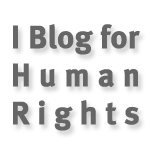I just completed my Law and Literature project. It was a case study on
Kartar Singh v. Union of India [(1994) 4 SCC 569]. For those who dont know, the case dealt with the applicability of anti- terrorist laws in India. In a not so surprising decision, the court stated that Rights may be compromised for the prevention of terrorism and the protection of the Country. This then leaves us with an important question, "Can the very fundamental Freedoms that we have stood for be compromised in the name of national security?"
While the project is attached below; I have posted its conclusion that will leave us with some interesting inferences.
.........................................................................................
The judgment given by the Court in Kartar Singh then is erroneous. In the name of the security of the State, a legislation cannot compromise the rights of the individuals. All along the case, the Court has stressed that the situation in the Country demands the need for strict measures and even if they violate the rights in part III, they are justified. We must not forget that we are a democracy, in fact, the world’s largest democracy. When a government is made for the people and by the people, it must protect the rights of everyone and not just a majority. Terrorisms greatest victory would be the shackling of the very foundations that we have stood for the past many years.
The judiciary in our country has never been rights oriented. It has always sought to protect the interests of the State vis a vis the individuals. This was more recently seen in the case of PUCL v. Union of Indiawhere the Court upheld the validity of the Prevention of Terrorism Act (POTA). Contrasting this with the time of Earl Warren in the 1960s and 70s in the United States, we see that individuals rights were always sought to be preserved. Somewhere in there we see Justice Krishna Iyer seeking to do the same but not being given due regard. If terrorism must be stopped, proper measures that do not violate due process must be used. This was also emphasized in the UN Resolutions with regard to terrorism, where it was stated that in the prevention of terrorism the fundamental human rights of the individual must not be compromised. If democracy needs to survive, rights of the individual must never be compromised. I would like to stress upon once again that terrorism’s greatest victory is shackling the very foundations of our democracy that is built upon rights and principles of natural justice. Our compromise is their victory.
........................................................................................
The complete project is uploaded here -
Document






0 Comments:
Post a Comment
Subscribe to Post Comments [Atom]
<< Home